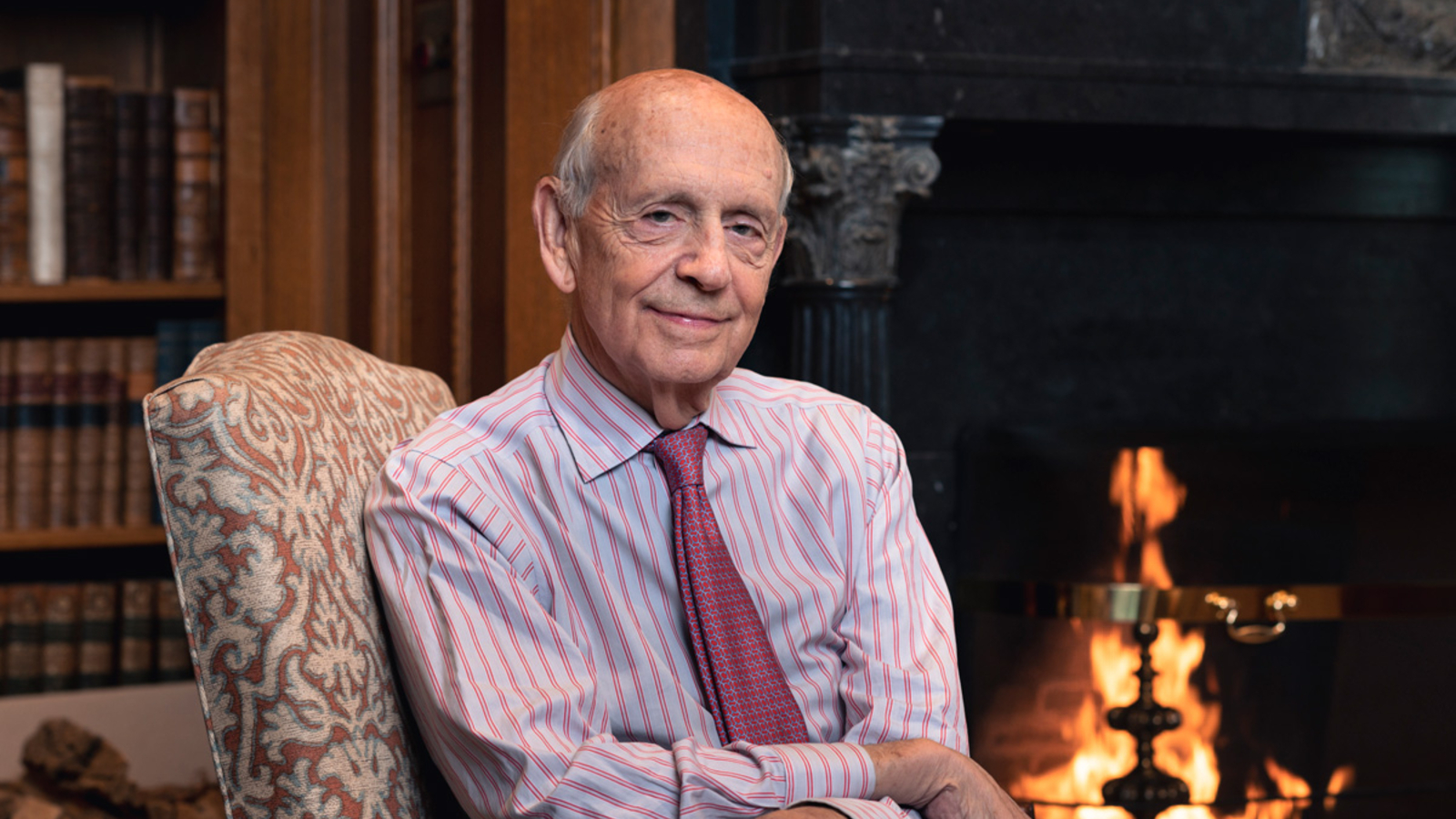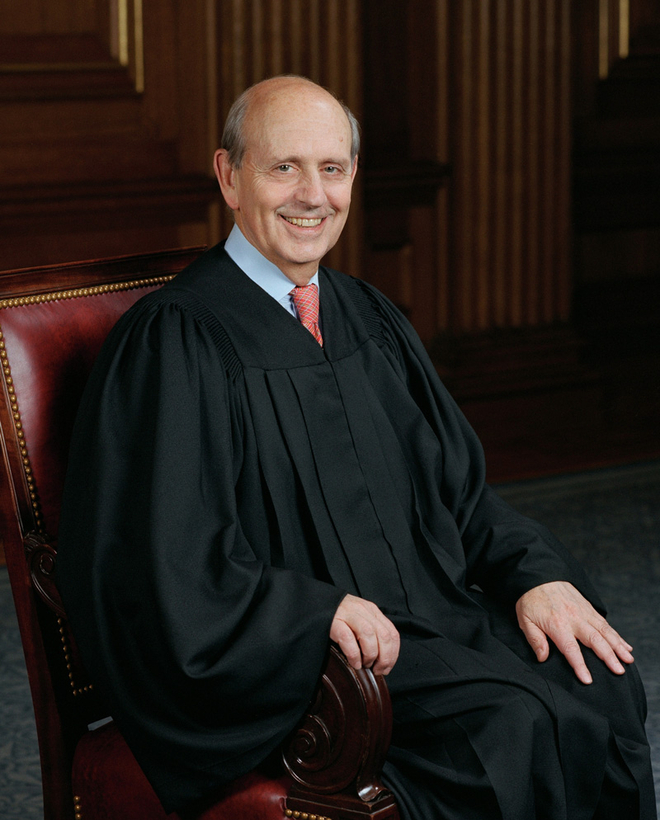Stephen Breyer


Stephen Breyer
Supreme court justice for over a quarter century, you are known for your pragmatic philosophy, a belief that the judiciary must adapt to changing society and consider real-world consequences for human beings when deciding cases. Your fact and data-driven decisions in matters involving school integration, the rights of criminal suspects, a woman’s prerogative to control her own body, and many more, mark you as someone who shares Justice Holmes’ belief that the important thing is “not where we stand, but in what direction we are moving.” Quintessential enlightenment man, Yale celebrates a justice who reminds us that judges must hew to principle, not politics, as we honor you with the degree of Doctor of Laws.
Stephen Breyer—whose nearly thirty years as an associate justice of the United States Supreme Court were defined by his pragmatic approach to calibrating the scales of justice—is a lawyer, jurist, and educator known for his contributions to the field of law and economics. A longtime friend of Yale Law School, he has participated in numerous lectures, conferences, and other campus events.
Born and raised in San Francisco, Breyer watched his parents engage in legal and political life (his father was a counsel for the city’s board of education, and his mother worked in the public sphere) and knew he wanted to emulate their lives of service. An Eagle Scout, he went on to an eight-year enlistment in the U.S. Army Reserve, including six months on active duty while he was earning his A.B. in philosophy at Stanford University. He studied philosophy and economics as a Marshall Scholar at the University of Oxford, graduating with first-class honors, and completed a bachelor of laws degree at Harvard Law School, where he was an articles editor for the Harvard Law Review and graduated magna cum laude. In his first year after law school, Breyer clerked for U.S. Supreme Court Justice Arthur Goldberg. He then spent two years as a special assistant to the assistant U.S. attorney general for antitrust before returning to Harvard, this time to join the faculty. His roles over the years have included an associate professorship at Harvard Law School, a joint appointment at the Kennedy School of Government and, most recently, distinction as the Byrne Professor of Administrative Law and Process.
“My hopes for you:
that you have someone to love;
that you find rewarding work; and
that you participate in the life of your community;
that without your active participation in public life,
our democracy will not work.”
All the while, Breyer continued to advance in the legal profession. He was an assistant special prosecutor of the Watergate Special Prosecution Force in 1973; served twice as counsel to the Senate Judiciary Committee between 1974 and 1980; and was appointed by President Carter to the U.S. Court of Appeals for the First Circuit, where over fourteen years, culminating as its chief judge, he became widely acknowledged for his nuanced, moderate stance. He was a member of the United States Sentencing Commission from 1985 to 1989 and of the Judicial Conference of the United States from 1990 to 1994. Following his appointment by President Clinton to the Supreme Court in 1994, he further cemented his legacy of nonpartisanship and cooperation with decisions marked by an attention to real-world consequences for the people affected. He is the author of Regulation and Its Reform (1984), Active Liberty: Interpreting Our Democratic Constitution (2005), The Authority of the Court and the Peril of Politics (2021), and Reading the Constitution: Why I Chose Pragmatism, Not Textualism (2024) among other books and extensive publication in legal journals.
Breyer’s career accolades include the Calvin Coolidge Memorial Foundation’s Award for Distinguished Public Service (2011), the Columbia Journal of Transnational Law’s Wolfgang Friedmann Memorial Award (2017), and several previous honorary degrees. In addition to his faculty service at Harvard, he has held visiting appointments at the College of Law in Sydney, Australia, and at the University of Rome. At Yale, he participated in a Constitution Day conversation with President Salovey and then-senior trustee Margaret H. Marshall in 2014, has delivered several lectures at Yale Law School, and helped to inaugurate the school’s Paul Tsai China Center in 2016.
Breyer married The Honourable Joanna Freda Hare, a psychologist, in 1967 and has three children: Chloe, Nell, and Michael, and six grandchildren.